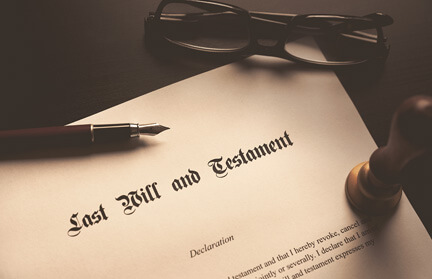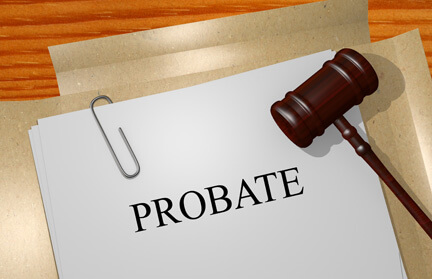Have You Inherited A House And You Want To Sell Fast?
Dealing with the loss of a loved one is incredibly difficult. Not only do you have to grieve over your loss in many situations you have to deal with an inherited home that is an added stressful responsibility. Keeping the house means having to deal with various costs associated with it.
-Repairs -Maintenance -Inspections -Inheritance Taxes -Mortgage Payments and much more
There are several paths you can take after inheriting a house from someone you loved, but most people decide to sell their house quickly and move on. If this is what you are looking for please contact us today!
The Process, The Expertise, All In One Place.
We have over 18 years of experience helping people cash out on their inherited homes. If you choose to sell your home to AJ Developers Group, you will be able to avoid costly repairs and save on paying commissions to an an agent to sell your home.
We Make Selling an inherited house to AJ Developers – Easy, Fast and Always Profitable to You!
- Mediation with your family’s attorney to remove blockers
- Cash Advances to Assist in moving, storage, past bills or any other financial hardship.
- Difficult and unresolved heirship issues is rectified by our expert professionals.
No will Prepared
We specialize in resolving complex heirship and title issues
Inherited Debt
We remove debt and judgements against the inherited property
Family Conflict
We assist in making it easier in family disagreements and resolutions
Clutter & Vandalism
We do all the work, so you don’t have to worry about junk, trash or hauling
Costly Repair
We buy houses As-Is in any condition with deterioration, damage and repairs
Tenants and Vacancy
We deal with existing tenants and vacancies .
What Is A Probate and When Is Probate Required?
After someone dies, if the decedent leaves a will, their estate is usually distributed to heirs and designated beneficiaries under the court’s supervision. This process is called probate. The house you inherited will go through probate unless the estate was set up to avoid probate.
Proper estate planing can simplify selling the family home after the death of a parent, spouse or a loved one, but without the proper planning an inherited home will have to go through the court system .
Inheriting a house can be a daunting process but selling can become an even more difficult task. Once the house is inherited, there are major steps to encounter before it can be sold. Is there a will that needs to be probated, was the property placed into a Trust or were none of these plans made prior to the decedent’s death? The goal is to help the family navigate through these difficult times, while ensuring they are accomplishing the goal to sell the property with the least amount of time, and impact on the Estate and heirs.
What Process Do I Need To Sell?
This question can only be fully answered based on what plans were put into place before the decedent passed away.
- If a Will was left outlining the wishes of the decedent then that Will has to be probated through the County where the decedent last resided or where there assets are.
- If the property was left in a Trust, the trust, very similar to a Will, outlines who the beneficiary (ies) of that Trust is and the Trustee can then proceed to sell the property and distribute the proceeds.
- If no Will was left and the property is not in a Trust, then a full administration process has to be completed where all the proceeds of the estate has to be divided equally among all the heirs.
- In some instances, one can fully avoid having to undertake any kind of process to sell a property if the property is jointly owned. Explained below.
Regardless of the process that needs to be undertaken, we are able to work with the family to complete the process in a timely manner.
Probating A Will
If a decedent dies, leaving behind a Will, it usually names one or more persons (executor) who is tasked with the responsibility to manage the estate as well as outlining who they want to inherit the possessions they have left behind. The Will, under the supervision of the court, is authenticated and the named individual is appointed. Once the Will has been probated, there are two methods by which the property can be sold:
- While it is still in probate; once the Executor has been appointed by the courts, they can then sell the property and distribute the proceeds as per the requirements of the Will.
- After probate; once this process has been completed, title of the property would then be transferred to the heir (s) of the property and they can then sell the property as though it was any other real estate transaction since they are the rightful owner(s).
A Property Left In A Trust
An individual will make the decision to place the property that they own into a Trust whereby a Trustee is appointed to make decisions for the property. This is beneficial in many aspects;
- While the settlor (owner of the property) is alive, the Trustee has no control of the property and that power only goes into effect upon death.
- This can be seen many times in cases where a parent has a minor child who will be the beneficiary of that Trust.
- Even if the situation does not involve a minor child, a property that is in a Trust eliminates the need to proceed with a court process in order to sell.
- The Trustee, upon the death of the settlor, is able to sell the property while it is still in the Trust and the assets of the Trust are transferred to the beneficiary.
- The Trustee can also transfer the property title to the beneficiaries name who can then sell. If it involves a minor child, at times a Trustee can retain control of a Trust for years until the minor becomes an adult.
Property Jointly Owned
There are three types of jointly owned property that does not have to go through a probate process in order to transfer title or sell.
- Joint tenancy with rights of survivorship is one way in which a title can be written. Co-owners have an equal share of the property that indicates, upon the death of one co-owner, full ownership transfers over to the individual who is still alive. In most cases, in order to transfer title or sell, proof of death needs to be provided.
- Property that is titled as tenants by the entirety means the couple as a single unit owns the property. Neither individual is able to sell the property on their own. It can only be sold or ceded to a beneficiary only when both parties agree. Should one spouse die, the surviving spouse retains 100% ownership of the property and it does not go through a probate process if that spouse decides to transfer title in a sale.
- Community Property -Some states recognize and allow property to be community property with the right of survivorship. This means that if a property is purchased after marriage both spouses have equal rights to the property and it transfers over in death from one spouse to the other in the same manner as joint tenants with rights of survivorship. COMMUNITY PROPERTY DOES NOT APPLY IN NEW YORK STATE
Administration
At times, the most difficult process in selling an inherited house is when the decedent has not made prior arrangements in the form of a will, a trust and if the property is not jointly owned. Not only does the administration process require the process to be finalized by the court, but it also requires working with all the heirs of the decedent.
- This process requires one or many individuals of the immediate family to be appointed as the administrator or co-administrators for the estate.
- All the heirs have to agree and sign off to make one person or several persons administrator (or co-administrators). The heirs usually appoint the person they believe would make the best decisions for the estate.
- All proceeds of the estate have to be distributed equally among all heirs.
- The process can become further complicated, requiring further intervention of the court, if one or more of the heirs do not cooperate or agree with the wishes of the majority.
- Once an administrator has been appointed to make decisions, the property can be sold by the administrator or it can be transferred to all the heirs who would then sell the property. The former is the less complicated form to sell a property with an administrator especially if there are several heirs.
Regardless of the method by which the heirs or beneficiaries are able to sell the property, we work side by side with the family until the process is completed. Our team of estate specialists, analyze each file on a case by case basis to determine the path needed. It is a collaborative effort between the family, our team and the attorneys that represent the family throughout the process.
Contact our team at AJ Developers Group and allow us to put our decades of experience in estate and probate sales across New York to work for your family.




